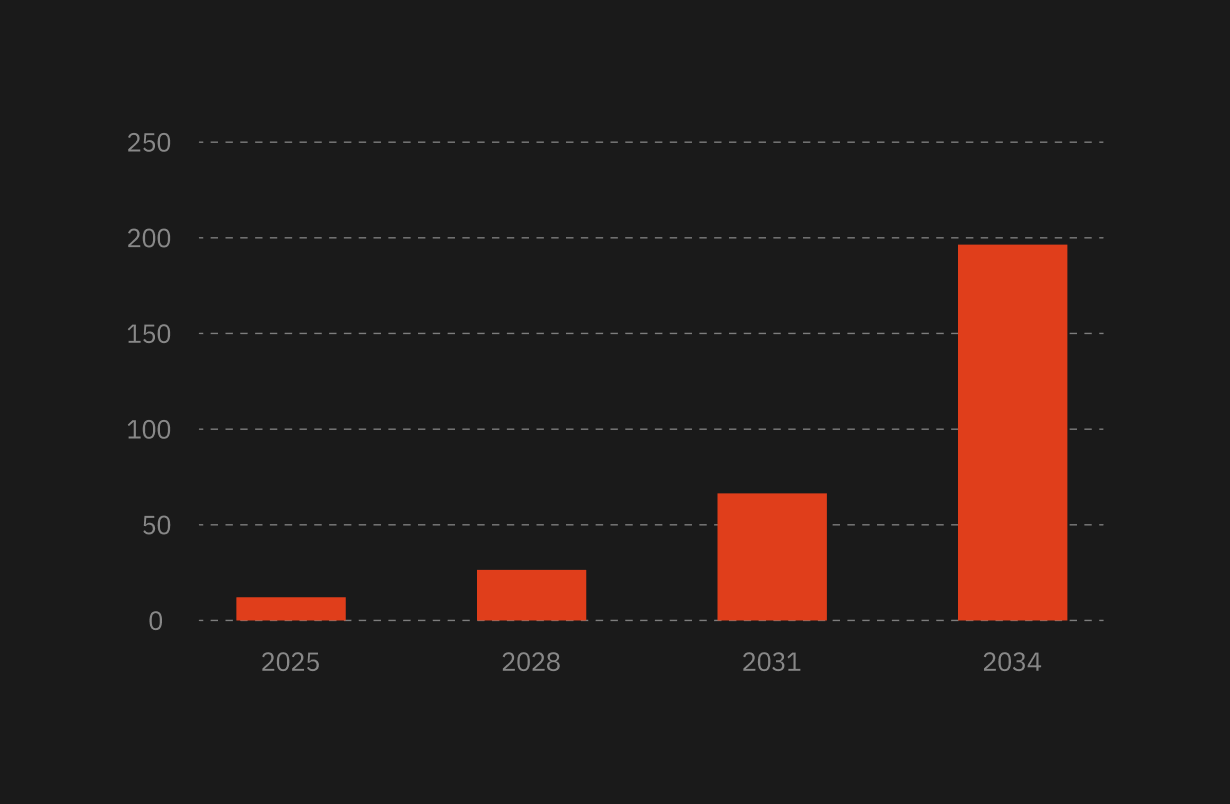Software Engineering Jobs Outlook: Q3 Recap & Q4 2025 Forecast
If you’ve been scrolling job boards lately, you’ve probably noticed the software engineer job market isn’t standing still. September 2025 brought a mix of cautious Big Tech hiring, fast-moving startups, and a clear shift toward roles in AI, cloud, and cybersecurity. In short: software engineering jobs are still in demand, but the landscape looks different depending on your level and specialty.
For anyone eyeing software engineer jobs remote, the competition is fierce. Remote listings are holding steady at around a quarter of total postings, but they continue to attract the lion’s share of applications. Hybrid setups are quickly becoming the default, especially for mid- and senior-level roles.
This snapshot will walk you through what really happened in September—where opportunities opened up, where hiring slowed down, and what kinds of software engineer jobs are shaping the market right now. And because October is traditionally a hot month for tech recruiting, we’ll also share what to expect if you’re planning your next move in the coming weeks.
September 2025 Market Highlights
The software engineer job market in September showed signs of life, but growth wasn’t evenly spread. Here are the biggest takeaways from last month:
Big Tech is cautiously back in hiring mode
After freezes and layoffs over the past two years, major players like Google, Apple, Microsoft, and Amazon have started adding engineering roles again in 2025. Each of these companies expanded their engineering teams this year, though hiring remains selective and focused on experienced talent.
Senior engineers continue to dominate
If you have 5+ years under your belt, the odds are in your favor. More than half of all active software engineering jobs in September were senior-level postings, especially in leadership-heavy or specialist roles.
Some industries are hiring like crazy
Investment banking saw a 91% jump in software engineering hires, while industrial automation rose 73%. Information services also surged 60%, making these industries the hottest spots for software engineer jobs right now.

Specializations Currently Driving Demand
While the overall software engineer job market is selective, certain specializations are powering most of the hiring momentum in September 2025. If you’re targeting your next move, these are the fields to watch:

AI and Machine Learning (AI/ML).
No surprise here: AI roles are exploding. Job postings that mention generative AI have jumped 80% year-over-year, with positions for machine learning engineers and data scientists leading the way. Companies aren’t just looking for research talent anymore — they’re hiring solution architects, product managers, and even enterprise architects who can integrate AI into real-world systems.
Data Engineering
Big Tech can’t get enough of data talent. Apple currently has more than 2,100 open tech roles, many in data, while Amazon and IBM each list around 1,800 openings. Nearly half of these are senior-level, showing just how critical data pipelines and platforms have become for scaling AI and analytics.
Cybersecurity
Cybersecurity hiring keeps climbing. U.S. postings rose 12% compared to 2024, but a World Economic Forum report found that only 14% of organizations feel fully staffed in cyber roles. That gap is driving persistent demand for network security engineers, cloud security specialists, and AI-driven threat detection experts.
DevOps and Cloud Engineering
Infrastructure is nothing without DevOps. In 2025, 37% of infrastructure postings are for DevOps or site reliability engineers (SRE), making it the single largest category in the space. Skills in demand include AWS, Azure, GCP, and container orchestration with Kubernetes. Almost 77% of DevOps jobs allow some remote flexibility, making it one of the more accessible specializations for global candidates.
Mobile Development
Mobile hasn’t spiked like AI, but demand is steady. Companies still need iOS and Android specialists, and cross-platform skills like Flutter and React Native are especially attractive. Mobile engineers with added expertise in AI-powered UX or full-stack development remain competitive in a crowded field.
Q4 2025 Job Market Forecast
October has historically been a strong month for tech hiring, and 2025 is no exception. Companies are wrapping up budgets, pushing critical projects forward, and locking in talent before the holiday slowdown. For software engineers, this creates a unique window of opportunity — but only if you know where to focus.
October is a seasonal hiring peak
Software engineering jobs typically spike in October and January, and early signs suggest this pattern will hold. Many firms are rushing to close Q4 gaps in their product roadmaps, which means more listings will hit the market. This isn’t a random surge — it’s budget cycles at work. If you’ve been holding off on applications, October is the moment to get them out.
More expansion, less replacement
In surveys from mid-2025, 56% of tech managers reported plans to expand their permanent engineering teams in H2 — not just backfill roles. That’s a meaningful shift from the “wait-and-see” approach of 2023–24. Expansion means more opportunities for fresh talent, but it also means higher competition. Job seekers should expect faster interview pipelines as companies try to lock in hires before year-end.
High-growth areas are clear: AI/ML, cybersecurity, cloud, and data analytics.
- AI/ML: Demand is still exploding — engineers who can show a generative AI project, a fine-tuned model, or practical integration with tools like LangChain will stand out.
- Cybersecurity: With postings up double digits and staffing gaps everywhere, certifications like CompTIA Security+ or Cisco’s free intro course can boost credibility fast.
- Cloud & DevOps: Hiring managers are prioritizing AWS, Azure, and Kubernetes. If you’re applying, highlight projects where you automated pipelines or cut deployment times.
- Data Analytics & Engineering: SQL and Python remain core, but mentioning experience with Spark, Kafka, or cloud warehouses like BigQuery is a differentiator.
Hiring will remain selective, not a free-for-all
Companies aren’t mass-hiring like 2021. They’re targeting specific skills tied to revenue and efficiency. If your resume is broad but shallow, you’ll struggle. But if you can show depth in one of the high-demand niches, you’ll stand out in a crowded field. Tailoring your applications to highlight measurable impact (e.g., “reduced cloud costs by 30%” or “deployed CI/CD pipeline that cut release times in half”) will be key.
“Selective hiring is about ticking the right technical boxes, as well as timing and relationships,” says Diana Zherebetska, Recruiting Team Lead at MEV. “Even highly qualified candidates might not be the perfect match for a specific role today, but they can become the ideal fit for a new opening just weeks later. That’s why networking and maintaining open communication between job seekers and hiring teams is so powerful. Building long-term relationships keeps candidates on the radar and often leads to successful matches when the right role appears.”
How to use October to your advantage
- Apply early in the month. Many firms push roles live in the first two weeks, then shift focus to interviewing and closing before November.
- Target growth industries. Skip sectors in decline (like marketing/advertising or logistics) and focus on banking, automation, healthcare, and AI-driven services.
- Double down on remote-friendly skills. Cloud, DevOps, and data roles still offer ~70% remote flexibility, making them strong bets if location is a concern.
- Sharpen your portfolio. A personal AI project on GitHub, a Flutter app on the Play Store, or a data pipeline demo will get you noticed faster than a generic resume.
October 2025 is shaping up to be one of the best times of the year to land a software engineering job, but it’s not about applying everywhere. Success will come from targeting industries on the rise, demonstrating depth in high-demand skills, and applying early while companies are in expansion mode.
Conclusion
September signaled where the opportunities are: senior engineers still in high demand, AI/ML and cloud fueling new roles, and cybersecurity holding steady. Remote listings remain attractive but crowded, while hybrid has quietly become the baseline.
October is when hiring momentum usually peaks. Focus your energy on sectors showing growth, apply early in the month, and highlight depth in one area rather than spreading yourself thin. That approach will give you the best shot at converting new openings into real offers.







.png)

.webp)








